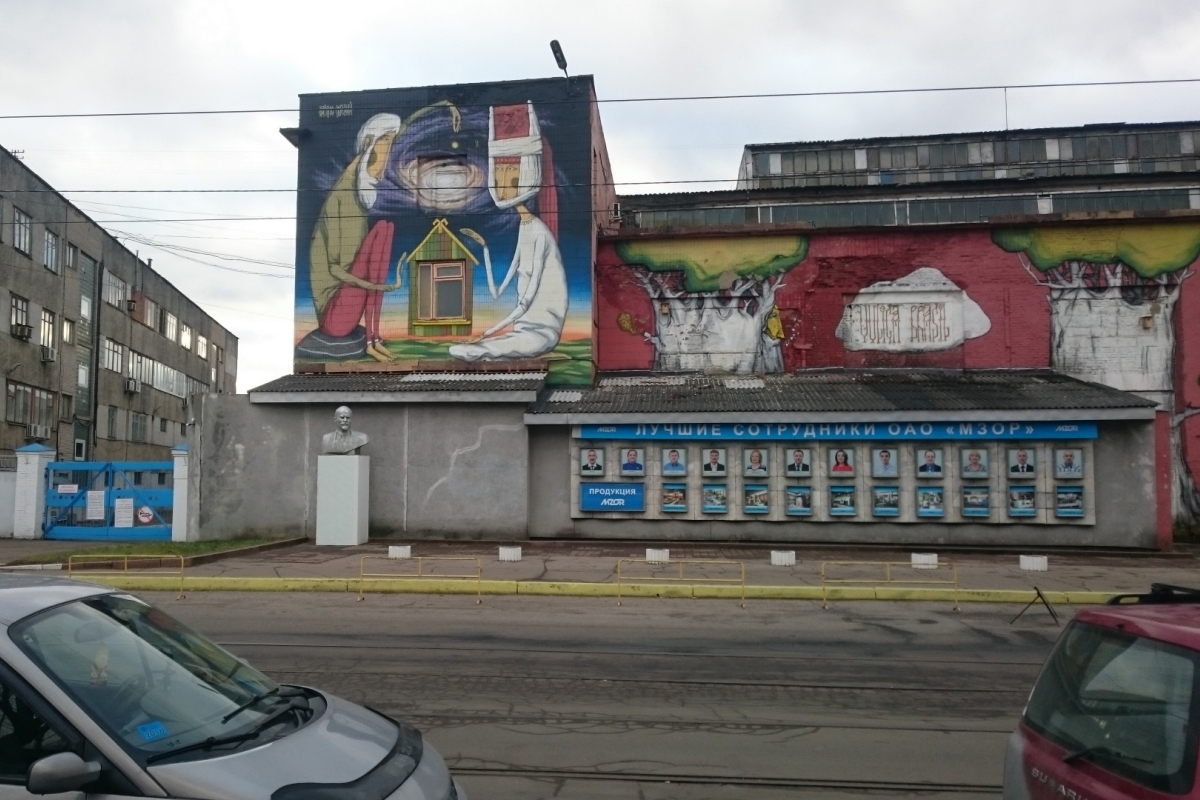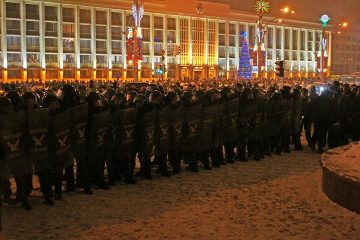Report on the Second Eastern Partnership Civil Society Forum
By Stefanie Schiffer. From the 18th to 19th November more than 200 representatives of civil society organisations based in the countries of the European Union and the Eastern Partnership (Ukraine, Belarus, Moldova, Azerbaijan, Armenia, Georgia) met in Berlin for the second “Eastern Partnership Civil Society Forum”. The aim of the conference was to present to the plenum the results of the work of the working groups and national platforms from the previous year, as well as to compose recommendations for the future work of the forum.
The Eastern Partnership Civil Society Forum is a body which was established in May 2009 by the European Union and which brings together representatives of organisations which operate independent of government influence. The forum is able to contribute to the regular meetings of the ministers of the Eastern Partnership States in Brussels with its recommendations in the fields of democracy and human rights, economic integration, energy and the environment, and contact between people. The fields as with which the Civil Society Forum works are designed to correspond to the platforms of the ministerial meetings of the Eastern Partnership. In this way the Civil Society Forum contributes to the governmental discussions conducted on several platforms.
The second meeting of the forum took place at the German Foreign Office in Berlin, after the first meeting had been organised by the EU Commission in Brussels. In so doing, and by inviting the Polish Foreign Minister to host next year’s forum in Poznan, the European member states are showing that they too hold the work of civil society organisations in the same high esteem that the EU does and that they wish to assume responsibility for the continuing success of this process.
Due to the relocation of the conference from Brussels to Berlin, it was also possible to conduct a whole series of public events in connection with the Civil Society Forum. This gave the politically interested public in Berlin the opportunity to familiarise itself with the civil and political developments in the Eastern Partnership states and the work of the nongovernmental organisations operating there. This opportunity was enthusiastically taken up by those Berlin actors who were not members of the Civil Society Forum.
The discussions at the forum itself left a mixed impression: Whilst there were more than 200 committed and well-informed representatives of nongovernmental organisations from the six EaP states and the EU present, the extremely schematic structure and leadership of the working groups and the plenary sessions provided very little scope for the development of common strategies or even for discussions to take place. For this reason, the forum left the impression of a politically very ambitious, but in the details of its execution somewhat aimless event. Thereby it fell short of the highly-set expectations. On a positive note, the leader of the closing plenary discussion did address the feeling of discontent amongst the participants with regard to the event’s lack of substance and concrete ideas, calling upon all participants to offer their criticisms and suggestions for improving the WORK OF THE Eastern Partnership Civil Society Forum. The members of the forum and particularly the supervision team are now charged with the great responsibility to take up these suggestions and to realise that the forum does not only have to meet the demands of organisation and protocol expected of such a large international event, but also has to provide a platform for substantive discussions dealing with issues which are currently of great importance.
Some of the KEY recommendations for the further development of the format are:
- The political dialogue between the representatives of state structures and those of the Civil Society Forum at the Ministerial meeting in Brussels, which forms the central idea of the Civil Society Forum, must take place in a more transparent manner. Ensuring that civil society interests are represented equally is the core aim of the Civil Society Forum and EFFECTIVE measures HAVE TO be taken in both Brussels and in the Eastern Partnership member states to make sure that this is the case.
- The supervision team, consisting of 17 people, has achieved quite something in founding and establishing the forum. It should be supported by a fulltime secretariat, which would be able to deal with organisational questions and the necessary communication between the members of the forum. In the long run it will not be possible to manage this politically ambitious project on a voluntary basis without its quality suffering.
- The financial SUPPORT for the Eastern Partnership programme from the EU Commission, and particularly for the work of civil society actors, has to be increased substantially so that the EU’s political decision of the willingness to assume responsibility for this region gains credibility. This would mean that the political declaration WILL be followed by concrete steps which are visible to the CIVIL societies of the EU and EaP states.
- Less technically demanding and far more relevant and up-to-date information about the events of the various formats of the Civil Society Forum and about the work of the supervision team are essential for informing the participants about the work of the forum, for bringing in new participants, for enabling participant organisations to offer criticism and proposals concerning the forum, and finally for contributing to the improved visibility of the Civil Society Forum in the societies of the EU and the EaP states.
- A format closer to that of an open space conference should be considered for the large yearly events, in order to make free exchange of ideas and creative work between the participant organisations possible.


